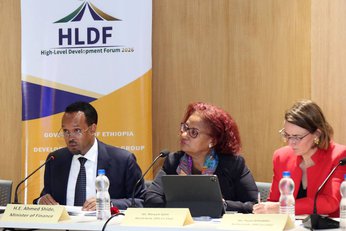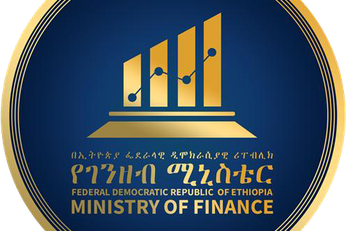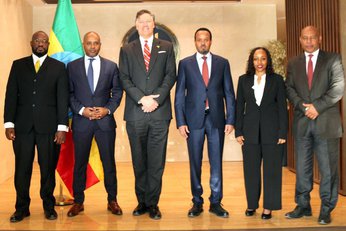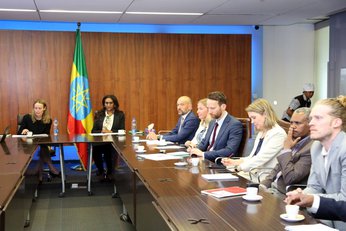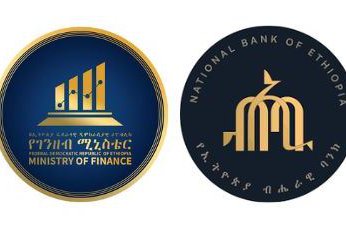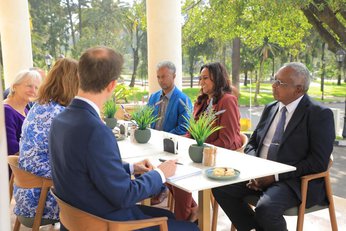Investing in Human Capital is Investing in Ethiopia’s Future: Ethiopia Human Capital Forum 2025 Officially Opens in Addis Ababa
Published: Oct. 2, 2025

Addis Ababa, Ethiopia – October 2, 2025 – The Ethiopia Human Capital Forum 2025, co-hosted by the Government of Ethiopia and the World Bank Group, officially opened today at the Adwa Memorial Hall in Addis Ababa. The two-day forum, held under the theme “Building Skills, Fueling Jobs, Driving Development”, brings together government leaders, international development partners, policymakers, and experts to deliberate on innovative strategies for advancing Ethiopia’s human capital development.

In his opening remarks, H.E. Tagesse Chafo welcomed guests to Addis Ababa, which stands as a symbol of unity, resilience, and aspiration for Africa. He emphasized that the greatest wealth of any nation is not its natural resources or physical infrastructure, but the "knowledge, health, creativity, and potential of its people".

H.E. Ahmed Shide, Minister of Finance, stated that hosting the event at the historic Adwa Memorial Hall—a place that embodies the spirit of determination, unity, and victory—underscores the commitment to winning the fight against poverty and inequality through "investing in our people". Minister Shide affirmed that Ethiopia's population is its greatest strength and hope, and that the future prosperity of Ethiopia hinges on how effectively the nation equips its young people with the skills and opportunities they need.
The Minister of Finance confirmed the government’s commitment, stating: “Investing in human capital is investing in Ethiopia’s future. Our focus on skills development will help drive job creation and inclusive prosperity”.
Maryam Salim, World Bank Division Director for Ethiopia, Eritrea, Sudan and South Sudan, stressed the foundational necessity of these investments: “No country can achieve sustainable growth and create jobs without investing in its human capital”. She highlighted that Ethiopia’s gains in expanding school enrollment, health coverage, and social protection show that “strategic investments are already creating opportunities for millions of families”.
Ethiopia has made significant progress across multiple sectors, telling a story of determined development. In education, the government allocates an impressive 22% of its total budget—more than the Sub-Saharan Africa average of 17% and above the global benchmark of 20%—leading to a substantial increase in enrollment at both primary and secondary levels, including unprecedented numbers of girls attending school.
In health, Ethiopia’s Health Extension Program has gained recognition across Africa as a leading model. Thanks to innovation, strategic partnerships, and steadfast commitment, the country has successfully lowered infant and maternal mortality rates to levels better than many of its peers. Community health worker programs and expanded primary healthcare services have been instrumental in this achievement. Additionally, Ethiopia reached Maturity Level 3 in medicines regulation, demonstrating a well-regulated pharmaceutical system.
The social safety net has also strengthened considerably. Each year, nearly 10 million of Ethiopia’s most vulnerable citizens benefit from the Productive Safety Net Program (PSNP). Social protection spending has increased and now accounts for 1.4% of the country’s GDP, ensuring more inclusive support for those in need.
Economic transformation is evident through innovative initiatives. The “Bounty of the Basket” project has increased milk production by over 40%, alongside remarkable growth in eggs, honey, and fish, boosting nutrition and empowering rural households with new skills. Meanwhile, the Ethiopia Tamrit program has revitalized over 600 industries, helping the manufacturing sector contribute more than 10% to the national GDP. Collectively, these efforts reflect Ethiopia’s unwavering drive toward sustainable development and economic resilience.
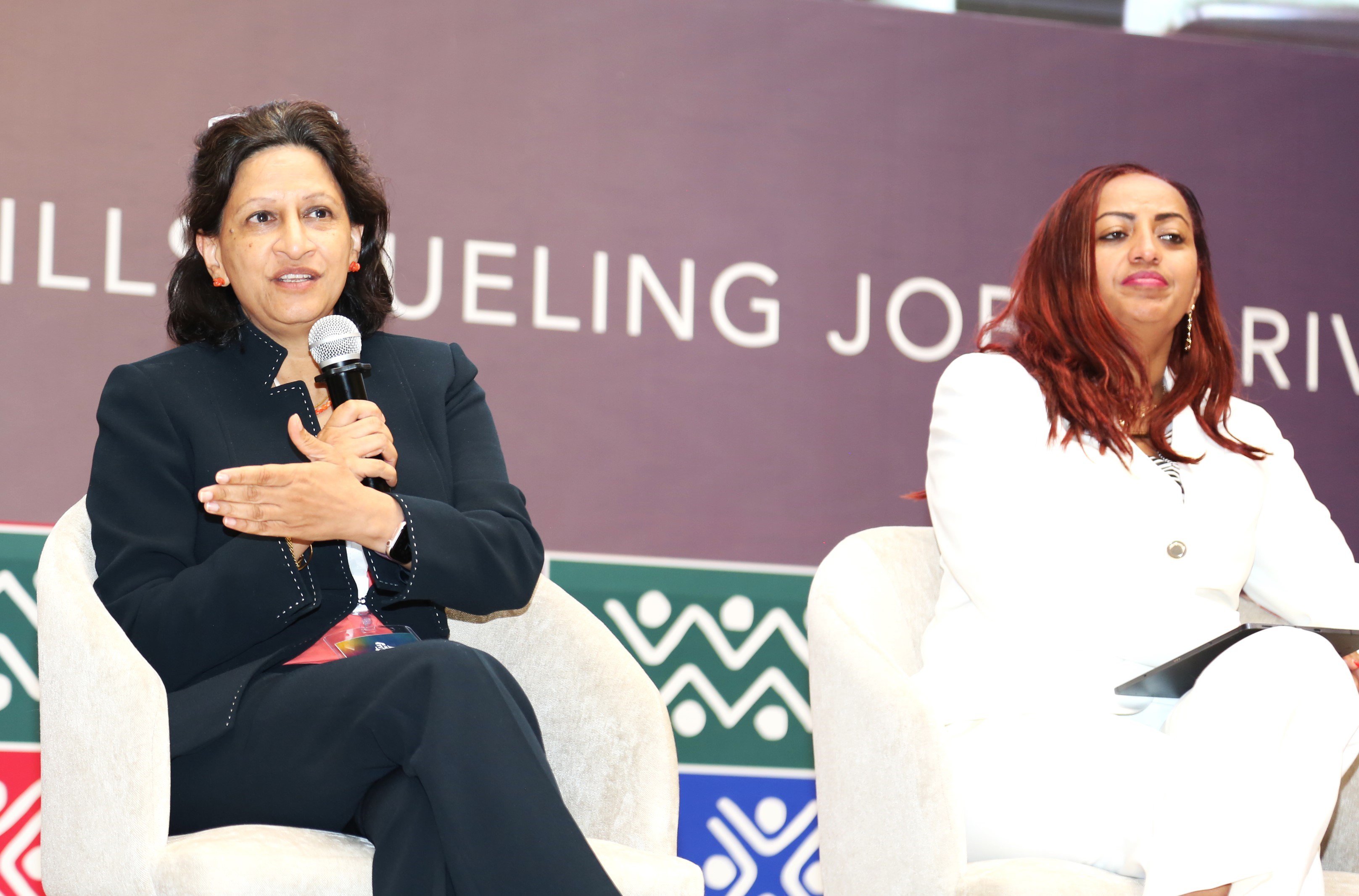
H.E. Tagesse Chafo concluded by reminding attendees that Human Capital is not only an economic necessity but a “moral and equity imperative”. He reaffirmed the government’s unwavering commitment to elevating Ethiopia’s human capital to "globally competitive standards through innovative strategies and decisive actions".

The two-day event provides a platform for participants to explore Ethiopia’s achievements and challenges, exchange evidence, and share best practices. The Forum continues tomorrow with sessions focused on evidence, collaboration, and actionable pathways to strengthen human capital and unlock Ethiopia's potential.

